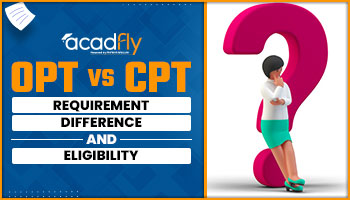

Traveling internationally as a student offers a world of opportunities for academic growth, cultural exchange, and personal development. However, managing the costs of international flights can be a challenge. By leveraging specific strategies and resources designed for student travelers, you can significantly reduce your airfare and make your international journey more affordable. This comprehensive guide will walk you through practical tips and effective methods to secure student fares on international flights, ensuring you get the best value for your travel budget while embarking on your educational adventure abroad.
Understanding Student Fares on International Flights
Student fares on international flights are special discounted rates offered to make travel more affordable for students. These fares typically provide significant savings compared to standard ticket prices and may include added benefits like flexible travel dates or free changes. Airlines and travel agencies offer these discounts recognizing the financial constraints faced by students. To qualify, students usually need to provide proof of their status, such as a valid student ID or enrollment verification, and adhere to specific booking terms.
What Are Student Fares?
Student fares are special flight rates designed to make international travel more affordable for students. These fares typically offer significant discounts compared to standard prices and may include additional benefits such as flexible travel dates or free changes. Airlines and travel agencies recognize the financial constraints of students and provide these discounts to support their travel needs. These student fares often come with conditions such as proof of student status and specific booking procedures, so it’s important to understand the terms when looking for these deals.
Why Are Student Fares Available?
Student fares are available to encourage travel among young people and make international education more accessible. Many students travel for study abroad programs, internships, or vacations, and airlines want to attract this demographic by offering lower fares. These discounted flights for students help make international travel feasible for those on a tight budget. Additionally, by offering student fares, airlines hope to build loyalty with young travelers who may continue to fly with them in the future.
Finding Discounted Flights for Students
Finding discounted flights for students involves researching airlines that offer special student fares and utilizing student travel agencies that specialize in securing budget-friendly options. Leveraging fare comparison tools and being flexible with travel dates can also help uncover the best deals. Keep an eye on promotions and student-specific discounts to maximize savings.
Researching Airlines That Offer Student Discounts
Not all airlines offer student fares, so it's important to research which airlines provide these discounts. Some airlines have specific programs for students, while others may offer occasional promotions. Check the websites of major airlines and look for sections dedicated to student travel discounts. Additionally, consider reaching out directly to the airlines for information on available discounts. Airlines such as Emirates, Lufthansa, and American Airlines often have student-specific programs or promotions that can significantly reduce travel costs.
Using Student Travel Agencies
Student travel agencies specialize in finding budget flights for students and can often provide access to exclusive student airfare deals. These agencies work directly with airlines to negotiate lower prices for student travelers. Popular student travel agencies include STA Travel and StudentUniverse. They offer various resources and tools to help you find the best deals on international flights. Using these agencies can also provide added benefits such as travel insurance, accommodation deals, and travel advice tailored to students.
Strategies for Securing Student Airfare Deals
1. Booking in Advance
Booking your flight well in advance is one of the most effective strategies for securing student airfare deals. Airlines often release discounted fares several months before departure, and booking early can help you take advantage of these lower prices. Try to book your flight at least three to six months before your planned travel date to secure the best rates. This approach also allows you to have a wider selection of flight options and potentially better seating arrangements.
2. Being Flexible with Travel Dates
Flexibility with your travel dates can significantly impact the cost of your airfare. Airfare prices fluctuate based on demand, season, and day of the week. If you have the flexibility to travel during off-peak times or on less popular days, you may be able to find cheaper flights. Use fare comparison tools and flight search engines to explore various date options and find the most affordable fares. Additionally, consider flying mid-week or avoiding peak holiday seasons to take advantage of lower prices.
3. Comparing Different Airlines and Routes
Comparing different airlines and routes is crucial for finding the best student travel discounts. Not all airlines offer the same prices or amenities, so it's essential to evaluate multiple options. Use flight comparison websites and apps to check fares across different airlines and routes. Sometimes, taking a connecting flight or choosing a less direct route can lead to significant savings. Additionally, consider budget airlines for shorter flights or less popular destinations, as they often offer lower fares.
Leveraging Additional Resources for Student Travel
1. Utilizing Student Discount Cards
Student discount cards, such as the International Student Identity Card (ISIC), can provide additional savings on flights and other travel-related expenses. The ISIC card offers discounts on international flights, accommodation, and attractions. Check if your card offers any partnerships with airlines or travel agencies that can further reduce the cost of your airfare. Some discount cards also provide perks like airport lounge access or travel insurance, which can enhance your overall travel experience.
2. Taking Advantage of Travel Credit Cards
Travel credit cards can offer various benefits, including rewards points, travel insurance, and discounts on flights. Some credit cards are specifically designed for students and offer perks such as lower interest rates or no annual fees. Look for travel credit cards that provide rewards for flight purchases or offer special discounts for student travelers. Additionally, some credit cards come with built-in travel insurance and protection, which can be useful for international trips.
3. Exploring Airline Loyalty Programs
Joining airline loyalty programs can provide additional opportunities for savings on flights. While loyalty programs are often associated with frequent flyers, students can also benefit from joining these programs. Earning miles or points through loyalty programs can lead to discounts on future flights or even free tickets. Check if the airlines you are interested in offer loyalty programs and consider enrolling to take advantage of these benefits. Accumulating miles through loyalty programs can also offer perks like priority boarding or free checked baggage.
Practical Tips for Booking Student Airfares
1. Verify Eligibility Requirements
When booking student fares, make sure to verify the eligibility requirements for the discount. Some airlines or travel agencies may require proof of student status, such as a valid student ID or enrollment verification. Ensure you have the necessary documentation ready when booking your flight to avoid any issues or delays. Also, check if the airline has specific age limits or academic requirements to qualify for student fares.
2. Be Aware of Restrictions and Fees
Student fares may come with certain restrictions and fees. For example, some discounted flights for students might have limitations on changes or cancellations. Carefully review the terms and conditions of the fare to understand any potential restrictions or additional fees. This information will help you make informed decisions and avoid unexpected costs. Be aware of change fees, cancellation policies, and any other conditions that could impact your travel plans.
3. Consider Travel Insurance
Travel insurance is an important consideration when booking international flights. While student fares can offer significant savings, unforeseen events such as trip cancellations or medical emergencies can still occur. Invest in travel insurance to protect yourself from potential losses and ensure you have coverage for unexpected situations. Travel insurance can cover various aspects, including trip interruptions, lost luggage, and emergency medical expenses.
Frequently Asked Questions
1. What are student fares on international flights?
2. How can I find discounted flights for students?
3. Can I get student airfare deals if I am already abroad?
4. Are there specific travel agencies that offer student airfare deals?
5. What should I consider when booking student airfare?









